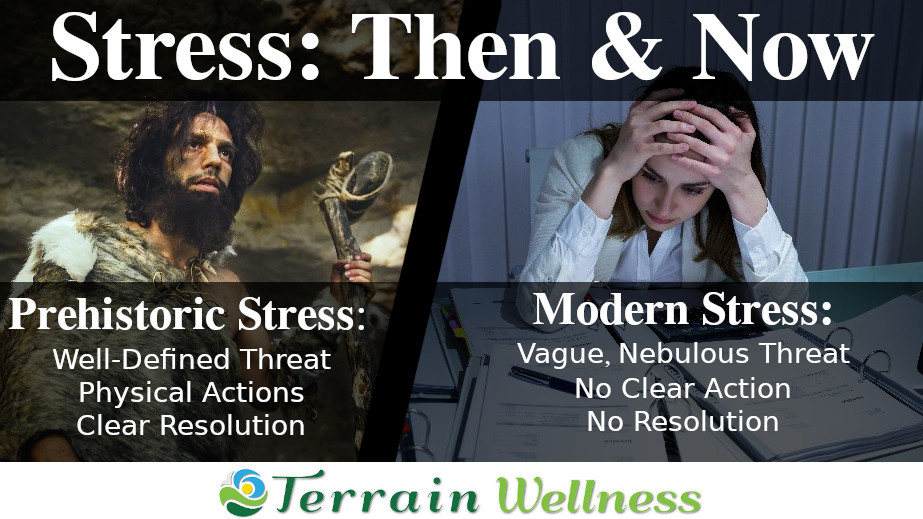
Acupuncture For Stress
In today’s uncertain times, the only constant for many high-achieving people is stress. This feeling of tension and unease can show up in various ways depending on the individual. At its most fundamental level, this common human experience stemming from the body’s fight or flight response to danger. A little stress here and there can be exciting, motivating and makes life more interesting. While positive and negative emotion surrounding a physiological state is subjective, positive stresses usually come with satisfaction in the form of a resolution. Riding a rollercoaster (if you’re into that sort of thing) would be an example of a positive stress in that it has a defined beginning and safe ending.
But too much stress when there’s no tangible resolution can become very harmful. For some, this feeling’s negative side takes the form of headaches, migraines and muscle tension. Others feel these unpleasant sensations as irritability, fatigue and body pain. No matter how it shows up in your life, it’s important to find healthy ways to manage the pressures of life. Not having a management plan can lead to over-eating, addiction, over-spending, declining personal health and damaged relationships.
Thankfully, there’s a lot that each of us can do to manage our negative emotions in ways that honor our bodies and minds. In this article we’re focused on the history of stress and how acupuncture can help. However, meditation, physical exercise, time in nature and avoiding processed foods can also play a significant role in improving our state of being. While the human body is fascinating and complex, stress reduction can be simple. A few changes in lifestyle along with regular treatments can make a profound difference in how we handle adversity and uncertainty.
History, Modernity & Fight or Flight

To understand how acupuncture can help us decompress, we first need to unravel how history collides with modernity. We humans don’t experience reality, we interpret it. Every second of every day, we’re applying subjective meaning onto the events and emotions that we encounter in ourselves and others. In the brain, our sympathetic nervous system stands by as a proverbial “fire alarm” to make us ready to spring into action in the event of an emergency. You’ve probably heard of the “fight or flight” response to danger. In fight or flight responses, the sympathetic nervous system releases adrenaline, dopamine and other chemicals so you’ll be ready to face a life-threatening situation.
The issue is that most of the developed world’s day-to-day problems will be made worse by fighting and physical confrontation. Road rage won’t get us there faster just as arguments at work can easily end a career. Looming deadlines, fear of failure, troubled romantic attachments and concerns about the world all produce a fight or flight response with nowhere to go. Peace-time problems can only be solved with calm and reasonable logic. Unfortunately, being reasonable goes right out the window when the emergency-oriented sympathetic nervous system is in charge of our lives. To combat this unfortunate tendency, modern humans end up suppressing their fight or flight responses, causing unease and anxiety to loom in the periphery of our consciousness.

In prehistoric times, our ancestors felt stress when there were dangerous animals or threatening circumstances nearby. Prehistoric stress was focused on physical outcomes like fighting off a Sabertooth Cat, running to shelter or freezing so the dangerous predator didn’t see you. In contrast, today’s fears are often abstract, with no defined beginning, middle and end. Modern humans have traded Sabertooth Cats for conceptual specters like job insecurity and inflation. While I feel much better not being hunted by wild animals, at least yesteryear’s problems were easily defined: either you bested the Sabertooth or you didn’t. Another plus side to being on the food chain may have been that an encounter with a Sabertooth involved a lot of physical activity. These strenuous activities were likely empowering and affirming. The negative emotion of an animal attack was offset by the victory of fleeing or fighting.
If they could, our ancestors might proudly tell us: I am fast, I am strong, I survived a Sabertooth. The problem is that you can’t fight or flee abstract concepts like layoffs and taxes. These modern fears live only in our collective imagination. Our lives are a confusing paradox of inflation and corporate downsizing juxtaposed against unprecedented physical comforts like indoor plumbing, grocery stores and social media. Another difference is that in bygone eras, experience was limited by time and place. In contrast, today’s world of social media may be summarized by the phrase “Everything, Everywhere, All At Once.” What would prehistoric life have been like if our ancestors had smartphones full of videos of every dangerous Sabertooth encounter on the planet?
Our smartphones are pocket-sized windows into the entire world’s negative experiences and emotions. Welcome to the 21st century, where you can live-stream an entire world’s ugliness from the comfort of your Portland, Oregon apartment. Many of today’s stressors are some mix of online, abstract and non-physical. Anxiety around intangible, hard-to-define concepts means that finding relief is similarly nebulous.

Why Acupuncture?
So where does acupuncture (Chinese Medicine) intersect with stress, primal fear and the abstract nature of modernity? Chinese medicine bypasses the logical mind and interacts directly with our physiology. By changing nerve patterns in the body, correctly applied trigger points take us out of our fight or flight states. Symptoms like migraine, irritability and muscle tension are symptomatic of unresolved stress where the sympathetic nervous system has been up-regulated to unhealthy levels. Acupuncture works by precisely altering certain nerve signals in the body to produce a desired therapeutic effect, gently transitioning us into a calmer state casually referred to as “rest and digest.” This calm mental state is the parasympathetic nervous system. The parasympathetic nervous system is the the state of mind that is useful for solving complex problems, logical reasoning, rest and recovery and self-care.
Beyond inducing a restful parasympathetic state, there are also certain trigger points within Chinese Medicine that induce the body’s release of natural and safe pain-relieving opioid compounds. This treatment modality helps reframe the frantic, life and death struggle of the sympathetic nervous system, allowing you to experience the tranquil, meditative state that is the parasympathetic system.
More than simply a vacation from unpleasant emotions, Chinese Medicine uses these profound changes in our biochemistry to help break us out of our patterns of continually ruminating on our anxiety-inducing ideation. To be clear, this is more than just anecdotes and opinions. The research clearly indicates that regular treatment sessions significantly reduce depression and anxiety while also benefiting the immune system (see: PubMed Acupuncture Effectiveness). Furthermore, this system of healing has also been demonstrated to have a beneficial effect for those suffering from migraines (see: NIH Migraine Study).
The best part is that it’s a drug-free therapy, meaning that there’s far less potential for long-term side effects. This ancient treatment modality is useful for changing our mental and emotional patterns, the results it produces are more natural and safer than pharmaceutical intervention.
Acupuncture in The 21st Century
In the 21st century, we’ve done away with the very concrete fear of being hunted by Sabertooth Cats. But, those old fears have been replaced with anxiety-inducing news headlines, pandemics, war and social-media feeds engineered to produce a culture of attention-grabbing outrage. Predictably, modern medicine answers these new challenges with new medications. Unfortunately, new medications often come with new side effects. While antidepressants and painkillers might have their place in emergencies and other atypical situations, these new medications have also brought with them a number of unintended consequences as well.
On the other hand, Chinese Medicine has been around for about 3,000 years. At the height of the Roman Empire, Chinese Medicine was already a thousand years old. In a technology-driven world searching for deep connection, acupuncture’s rich tradition of healing lore, now backed up by modern research, is a meaningful way to connect with yourself while relieving pain.
Come in and try acupuncture at our Portland, Oregon clinic today.
